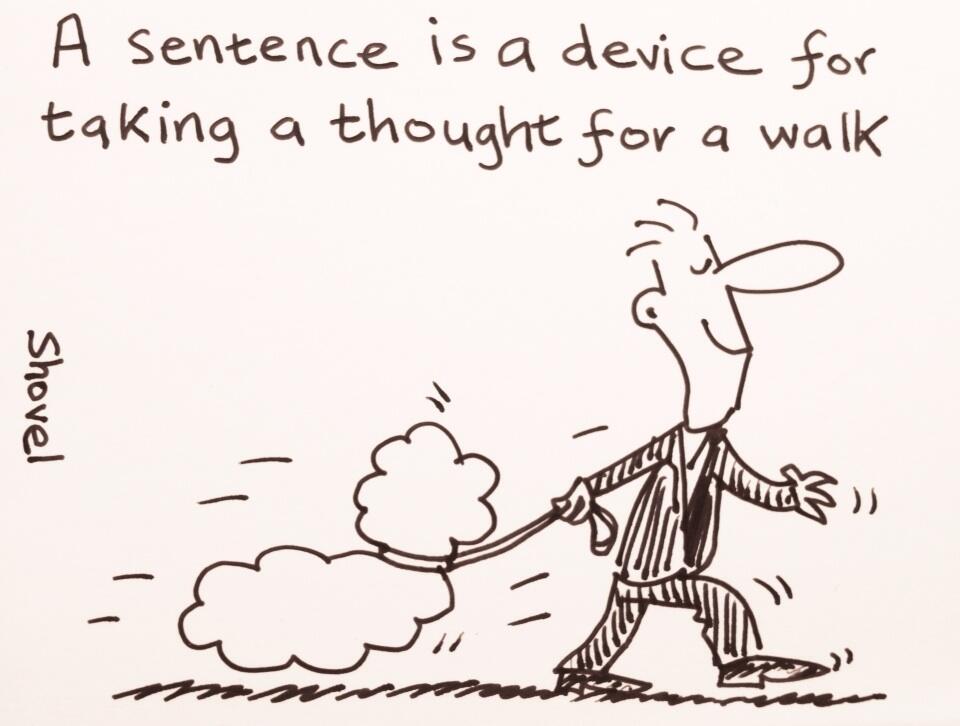So this is my final blog of the Summer term and it's all about readiness and starting off on the right foot with primary languages. How can schools build successful strategic teaching and learning focuses for the individual school/ and understand and build toward successful primary language learning embraced by the whole staff within the school?
This academic year the JLN subject coordinators and I have spent our coordinator CPD sessions considering how we can prepare , use and move on with the new DfE POS for KS2 primary language learning.
51 colleagues(divided in to two smaller groups ranging from established, building or just starting off schools) and I have met one afternoon per term to discuss the new POS. The new DfE POS is not so "new" now as we have had sight of this for at least 12 months ,certainly 12 months in its completed state). It's the official document from which we must all work in state education and has to support beginners , moving on and established primary and KS3 language learning school programmes.
Who should teach primary languages?
We discussed delivery and sustainability and came to the conclusion that schools find their own delivery models - in school PPA, visiting teachers, language assistants ,experienced and target language speaking HLTAs,class teachers supported by SOW and sound files etc. all of these have value and should be valued! What is key is that there must be a strategic vision in school, a long term overview, medium term planning and appropriately selected next steps are in place. why? The role of coordinator is a vital one.We felt that there is staff buy in and a collective feeling that the school values primary language learning when it is an integral part of the whole school learning programme not seen as an "add on "!
These are our conclusions (from coordinators ,young and old, experienced and new to the role, specialists and non-specialists) and we hope that they may be useful and support our schools and other networks and individual schools and teachers to develop or tweak sustainable and successful language learning models.In our opinion ,after reflection ,the POS may be brief (in amount of paper) but it is not a fluffy document.You need to look for the opportunities within it too! We know there will be other points to be raised and discussed etc but hopefully here are some good starting points!
A school vision
Firstly we took a look at the "Purpose of Study".The first sentence talks about the "liberation from insularity" !
What a phrase. We deliberated..... and then Robert (a wonderful Spanish coordinator) declared it's the "WOW" factor! It's the moment a child speaks a word in the target language for the first time or tells his/her carer/ parent about the facts s/he has learnt in school about the country etc today. For us,it's the conversations we have with target language speakers and the adventures we can have too.We felt that from here we could all begin to tweak, maintain or build our picture of the school vision from Sept 2014 onwards. This picture inspired us!
.
We identified in the paragraph core focuses for the coordinators and core challenges that needed to be unpicked back at school to create a school vision statement:
- High quality teaching and learning
- Culture
- Preparation for future language learning
We unpicked the phrase "new ways of thinking and great literature " and with our practical hats on decided that in exploring the culture of the target language we would need to consider why and how festivals, traditions, cultural approaches,story,poems,daily routines occur in the way they do.We felt that the phrase(no longer a learning focus of language learning)"inter-cultural understanding" would still help us to explore with the children new ways of thinking and great literature.
We could see how we may want to explore the simple stories for example next year about WW1 or evacuees during WW1 and WW2 and how therefore we would need to encourage our children to empathise with circumstances and emotions that may be very unfamiliar.
We pondered long and hard over "great literature" and what that word "great " really meant. We talked a lot about all the lovely stories we have been using to colour in the learning in languages that is already taking place.
We can not throw away our story books such as "grand monstre vert" even if it is written by an american author nor can we not read "The Hungry Caterpillar" or "Going on a bear hunt" in the target language because they too are by non target language speakers. The children love these stories and it's the light bulb moments when they realise you can access, buy and read these stories in other countries and languages that is too precious! We will continue to share rhymes such as itsy bitsy spider in the various target languages with our very young learners too. we already explore authentic poetry and we know for example that we have already used poetry Jean de la Fontaine (le rat de ville et le rat de champs) in very much abbreviated form when for instance we have looked at my town your town and my house your house. We look forward to the challenge of simple poetry in the target language and building on the authentic rhymes, songs and simple poetry we already use from the target language.We want to offer the children "great " learning experiences and this will involve familiar stories and also new and exciting explorations of authentic and respected literature from the target language! We look forward to this challenge but will always try to work with texts that are learner age and stage of learning appropriate or have age and stage appropriate activities to unpack the text! During our conversations it was very clear that we are about inclusive learning and seeing all children progress in their communication skills.
Making substantial progress,using bi-lingual dictionaries are already part of the school focus and on the agenda in lots of the schools I work with
Substantial progress makes language learning more valuable and respected in our opinion.(We aren't just singing a song or repeating numbers 1-10 ... we are going on a learning journey,often revisiting familiar language but also trying to build upon it or use it in a new way).Schools find that long and medium term planning gives them the bigger picture and allows them the opportunities to weave new activities and resources through their language learning year, still ensuring progress in content and skills.
It seems sensible and good practice to the teachers that they share with the children tools that make learning more accessible and this links so well with phonology and independent use of language. Indeed lots of the co-ordinators identified that some simple staff CPD input about pronunciation,intonation,rules of phonology in the target language and then very importantly how to use and access the bi-lingual dictionary help staff buy in as well! Stumbling blocks for staff are often not knowing where to access language and sound files, uncertainty about pronunciation or not knowing how to use a bi-lingual dictionary and as they progress not being sure about which definite article they should be using and how to find this out.Simple in- school teacher led or consultant/trainer led CPD input can allay the fear factor and then all staff can embrace to a certain level language learning!
Grammar
Grammar is a challenge not an obstacle for teachers.Once they see how it links to the need to structure sentences accurately to develop competent clear communication skills and they recognise that this is what they are already promoting in literacy then it becomes an exciting challenge.In fact I think it allows primary language learning to become more meaningful and powerful for lots of primary class teachers - it's not just a lot of words or a silly rhyme,but there is point and purpose and sometimes the teachers learn alongside the children and feel more and more confident in their use of language. I have spent a lot of this academic year creating resources and materials to explore grammar and structure appropriately and creatively with young children and can get very excited about what we really can achieve with the young learners and grammar! Again there is need for staff CPD and there is need for a guiding hand and making those links between literacy and language learning and how they are all part of exploring language and communication,which helps to remove the fear factor.
Subject Content
In considering the subject content,we had to consider also the Aims of the new POS. We found them pivotal to both the school vision, strategic planning and to the meat of the week on week lesson planning.They helped us to look at what we should access and use and how we should plan for teaching and learning activities.We saw opportunities for shared learning tools and resources across KS2 and also shared tools and approaches as pathways in to KS3 and beyond.Really important as we had already identified that we need to lay foundations for KS3 learning and that KS3 should pick up and develop further what primary have achieved.Shared learning tools could mean shared pathways to learning and knowledge of prior learning and how and why this has taken place.
Of course the co-ordinators are first and foremost teachers and so the subject content bullet point list was seen as integral to our subject content discussions on planning and progression.
Firstly we reminded ourselves that we must make sure now right from Year 3 September 2014 that there is appropriate balance of spoken and written language and that we practise with the children all four skills of listening,speaking ,reading and writing. This may seem like a big change for those of us who remember the early stage focus on listening and speaking,but ask yourself how many children need to see words and physically create words and sentences before they are internalised and can be used independently? (I have poor hearing now at 51! I am not certain I have ever had wonderful hearing but I do love languages and exploring the structure of language and definitely have always needed more than just listening and speaking to access language .)We did feel though that in the early stages there is bound to be more listening and speaking and those that teach languages as KS1 want to continue and see singing , joining in and listening and speaking as integral to that KS1 language learning.We all felt that writing must once again be planned as age and stage appropriate and that we have to find creative ways to write- in the air/ as a game writing with a finger on backs,writing in sand, using IT to record writing, "painting writing" etc.We are keen to remember as we plan for writing next term that scribing with a pen or pencil is often just the final product - what is happening inside the brain is the mechanics of writing and reading and listening are integral to how this all comes together.
The bullet pointed subject content in the POS embraces listening ,speaking ,reading , writing and grammar. Colleagues such as Clare Seccombe and Rachel Hawkes have collated and drawn up really useful lists of the five key elements on their blogs.Those of us who worked with or trained people with the KS2 Framework,know that we need to break down these lists and points into stages of learning to learn how to ....listen, speak , read, write , use structure and we identify the KS2 Framework objectives as the climbing frame upon which to achieve this. Great thing with climbing frames is you can go up,down , over the top, start again from the bottom or take a rest half way up and admire the view! We are going to try to remember that language learning skills spiral up and spiral down (very much like Maths can do) and our learners need to climb at their own best speed.
So after spending the year in CPD sessions, on email with colleagues,in meetings with local coordinators and SLT,training our local teachers and working with the associate language teachers what do I think currently about primary languages from September 2014 and the new POS? Clare Seccombe (@valleseco) asked us to describe the new POS in one word recently on Twitter and unusually for me it took me quite a while to decide upon my word but then I tweeted "opportunity".Why? We need to take this opportunity and help all the children in KS2 to become confident in their ability(at whatever level) to operate in a new target language.On Twitter recently I received this cartoon from @PatriciaDunn71
Let's try to help all our young learners to explore the skills of language learning ... "speaking with increasing confidence,fluency and spontaneity, finding ways of communicating what they want to say ..... and learning how "to write at varying length ,for different purposes and audiences ". We need to combine this with the "liberation from insularity" and encourage all our children to have the confidence to develop enquiring minds that want to explore "great literature" and also understand different cultures, languages and "ways of thinking"
Time for a holiday I think - sorry for rambling on!








No comments:
Post a Comment